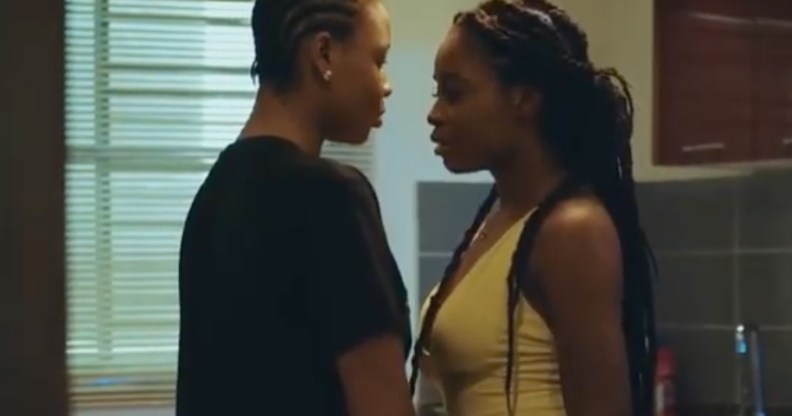Producer of Nigeria’s new history-making lesbian film has a cunning plan to beat homophobic censors

A still image from Ife (YouTube)
A lesbian love story set in Nigeria will be released online to avoid censorship in the staunchly anti-LGBT+ African country.
Ife, which means “love” in the Yoruba language, tells the story of two young women who fall in love and face homophobia in their home country.
The trailer was uploaded to YouTube last month and immediately sparked excitement in the queer community in Nigeria, where same-sex sexual activity is illegal.
Now, the film’s producer has told Reuters that Ife will be released through an on-demand streaming platform later this year in an effort to dodge film censors, who would be highly unlikely to allow the film to be distributed in Nigeria.
Lesbian love story Ife will be available online before the end of the year in an effort to dodge film censors in Nigeria.
“Anyone who wants to watch will be able to do so from anywhere in the world,” producer and LGBT+ activist Pamela Adie said.
“In Nigeria, there has never been a film like Ife,” Adie said.
“No film has had the impact it will have, or already has in Nigeria… The reception to the poster and the trailer has been mad.
“We expect that it will be madder when the full film is released.”
No film has had the impact it will have, or already has in Nigeria
Adie believes the arts and media can help change people’s views towards LGBT+ people.
“Every time there is a film made that centres LGBTQ people, it would always be about gay men,” she said.
“This is one for us… it will bring immense joy to the hearts of many of us who would be seeing people like us centred in a Nigerian film for the first time.”
https://www.youtube.com/watch?v=b5HQ8ujcRnc
Filmmaker hopes the film will ‘change how heterosexuals’ view the LGBT+ community in the anti-LGBT+ country.
Speaking to CNN last month, Ife director Uyaiedu Ikpe-Etim said it was vital that space was created for queer characters in Nigeria’s prolific film industry, often referred to as Nollywood.
“I’m queer so Ife is dear to my heart,” she said.
“I wanted to represent LGBTQ characters in a different light than how they are shown in past stories, to change how heterosexuals view them.”
Anti-LGBT+ attitudes in Nigeria are pervasive. A survey last year from the Initiative for Equal Rights (TIERS) found that 75 per cent of people in the country support the ban on same-sex sexual activity.

